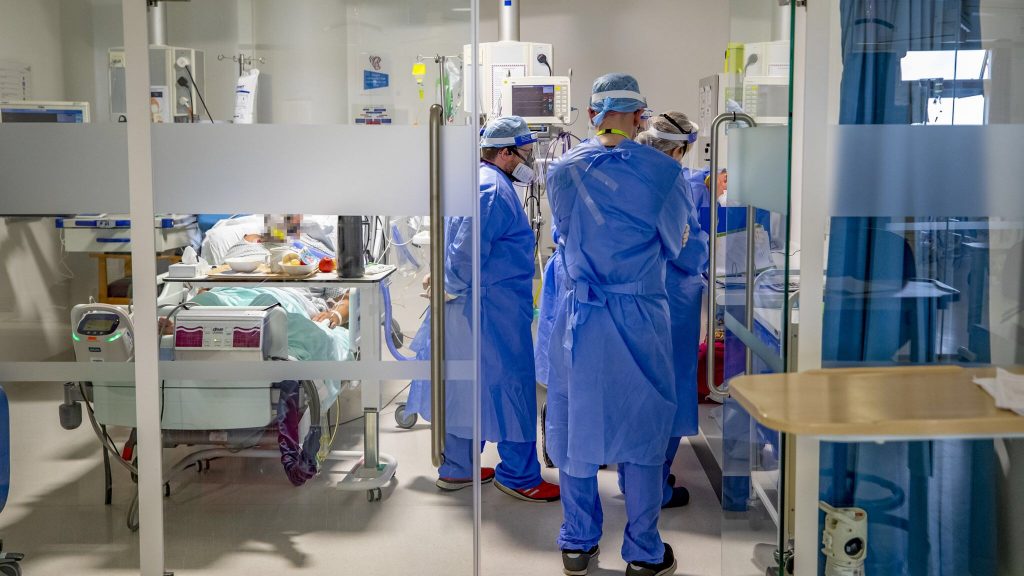On Tuesday (October 12 2021), a cross-party report was published detailing the government’s many failures in handling the Covid-19 pandemic. Among the errors the document lays out are how the government was too slow to lock down, too eager to abandon community testing, and how it failed to implement effective contract tracing. The report was developed by the Health and Social Care committee, chaired by former Tory Health Minister Jeremy Hunt, and the Science and Technology committee, chaired by Gleg Clark, Business Secretary under Theresa May.
The report admits that the government failed to learn from Asian countries’ experience with SARS and MERS, being prepared mostly for pandemic influenza. “We all, in the UK, US and Europe, as experts and in policy, had a bias to flu”, explains former Chief Medical Officer for England, Professor Dame Sally Davies. “As I look back, going back to Winter Willow, which was well before my time, and the national risk assessment, we underestimated the impact of novel and particularly zoonotic diseases”. Winter Willow was a major simulation of a national flu pandemic.
Professor David Heymann, Professor of Infectious Disease Epidemiology at the London School of Hygiene and Tropical Medicine, explains how many Asian countries responded better to the outbreak. “They were well prepared. They learnt lessons and they applied those lessons between the current pandemic and SARS. They developed excess beds for hospitalisation and isolation. In all of those countries, those rooms have renal dialysis capacity and ventilation capacity. They learned and applied the lessons. By 20 January [2020], they were already detecting cases and responding to outbreaks that were occurring“.
One of the key failures of the UK government was how it implemented non-pharmaceutical measures, including lockdowns. There was uncertainty about the nature of the pandemic in the early months, but compared to other countries, the UK’s approach was too slow and gradualist. In March 2020, the government moved to lock down less strictly than other parts of the world, so as to “slow the spread of the disease throughout the population, while ensuring the country’s ability to continue to run as normally as possible”.
This meant many large events went forwards, such as Liverpool FC versus Atletico Madrid, with 50,000 in the crowd, and the Cheltenham Festival of Racing, attended by 250,000 people overall.
At the same time, countries such as China and Vietnam were taking far more effective measures to stop the spread, such as China’s suspension of rail and air travel in and out of infected areas, with many roads in Wuhan being blocked upon outbreak.
Since March 2020 began, the number of cases in the UK has increased by 7,934,901, from the starting point of 35. The increase in Vietnam was much lower, at 846,207, and in China it has only been 28,600 since the 80,000 reached there last March. Bearing in mind these countries’ larger populations and how they had less time to respond to the outbreak, it is remarkable how poorly the UK has fared.
This slow response was not simply the result of uncertainty in government, or debate amongst the MPs and the senior scientists, it was “a deliberate policy — proposed by official scientific advisers and adopted by the Governments of all of the nations of the United Kingdom“, says the report. Former SAGE participant Professor Neil Ferguson said that if national lockdown had been implemented just a week earlier “we would have reduced the final death toll by at least a half”.
One measure essential in effectively keeping track, and therefore control, of the virus is successful testing and contact tracing. However, the government chose to implement a nationwide approach through private companies, contracting Serco and Sitel to provide the service.
As with past cases of public service through private companies, we saw the loss of great deals of money going towards the provision of a sub-par, broken system. Professor Sir Chris Ham said the government was “biased too much towards the national and too late in providing resources and staff at local level: On contact tracing specifically, the Government chose to go down the route of bringing in private sector expertise through Serco and Sitel to run the national system. Only belatedly have they recognised the expertise that exists within our councils and our public health teams”.
This report has demonstrated what many Britons already know, that the extent of the coronavirus’ spread, and many of the thousands of deaths, were entirely preventable. It is a direct result of Tory policy that the outbreak has gotten so out of hand, with the example of so many other countries proving the benefits of decisive state intervention. Relying on private companies for provision of contact tracing has proved disastrous, and the flip-flopping on restrictions, such as in the lead up to Christmas 2020, did nothing to help contain Covid-19.
Speaking on the report, Keep Our NHS Public co-chairman, Dr John Puntis, said: “The most shocking thing about the report is the implication that a successful vaccination programme provides absolution, even at a time when a ‘vaccination-only’ policy for disease containment is leading to further unnecessary deaths”.
Professor Stephen Reicher, member of SAGE’s behavioural science sub-group, argues that early in the pandemic the government was “bound to make mistakes. To me, the real problem is the repetition of these mistakes. We made mistakes at the beginning, but then made them again and again… The real issue was not any split between scientists about what government should do, but about what scientists advised and what government did”.
Philip English, is a member of the YCL’s Birmingham branch




